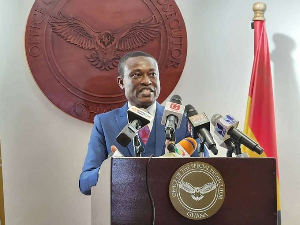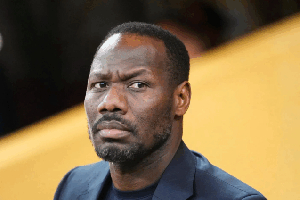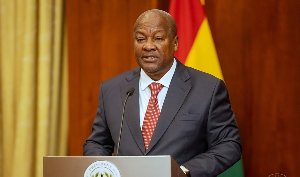It is submitted that the judge who granted the application for interim injunction purporting, first of all, to restrain the EC from gazetting the parliamentary results of the Hohoe Constituency, and also to restrain the MP-Elect for the Constituency, John Peter Amewu, from being sworn-in in Parliament, did not only err in law but also in fact. To start with, the judgment had been overtaken by events and therefore moot. This is because the very action the application sought to injunct had already happened thereby making the judgment unenforceable by reason of it being ex post facto.
Facts are that, the EC duly gazetted the results of all the 275 constituencies including that of Hohoe on the 22nd of December, and yet the injunction was granted on the 23rd of December. Upon gazetting the results, the EC had become what we call in law, functus officio, which meant that its decision (i.e. the content of the gazette) was binding and also irrevocable at the instance of the Commission. It was only the Court that could reverse what had been duly gazetted by the EC.
The position of the law is that the only way of challenging the results of elections as declared and gazetted by the EC is through an ELECTION PETITION submitted to the High Court (in the case of Parliamentary elections – see Article 99 of the 1992 Constitution) or to the Supreme Court (in the case of Presidential election – see Article 64), and NOT through an ex parte application for the enforcement of human rights, as has been done in this case.
Secondly, the High Court judge also erred for failing to apprise himself with a binding JUDICIAL PRECEDENT (stare decisis et non quieta movere), which is an existing Supreme Court judgment on the status of the affected communities; to wit, Santrofi, Akpafu, Likpe, and Lolobi, hereinafter referred to as SALL.
In November 2020, the Apex Court of the land had, in a unanimous decision in the case of Valentine Edem Vs Margaret Kweku, ruled that, these four communities (SALL) cannot and do not fall within the Hohoe Constituency in the Volta Region, because they all fall within the Oti Region pursuant to C.I. 112, C.I, 128 and Article 47(2) of the 1992 Constitution, which provides that no Constituency shall fall within more than one region.
The Supreme Court ruled that C.I. 95 which originally created the Hohoe constituency inclusive of SALL, was inconsistent with Article 47(2) of the Constitution as well as C.I 112 which set up the Oti Region. The Court only fell short of declaring C.I. 95 as void, obviously because that was not part of the reliefs being sought for. The court cannot give you what you did not ask for. However, by necessary implication, it is evidently clear that per the decision of the court, C.I 95, had been rendered moot and unenforceable by reason of Article 47(2) and by the coming into force of C.I 112 and C.I. 128.
It is also noteworthy that by reason of the doctrine of JUDICIAL PRECEDENT which finds expression in Article 129(3) of the 1992 Constitution of Ghana, all lower courts are bound to follow the decision of the Supreme Court on questions of law and related facts. And so, decisions of lower court that are inconsistent with decisions of higher courts, shall therefore, to the extent of the inconsistency, be nugatory and for that matter unlawful. In law, we say, such decisions are given PER INCURIAM.
So, going by the decision of the Supreme Court to the effect that communities within SALL fall under Buem in the Oti Region and not Hohoe in the Volta Region, it beggars belief that persons coming from these SALL communities would claim to have prima facie legal rights in the Hohoe parliamentary elections which right they purported to enforce at the High Court.
How can you be in Oti Region and want to determine who becomes an MP in Hohoe, which is in a different region? Equally, how can you vote Presidential in Oti in the 2020 general elections, and yet, want to vote Parliamentary in Hohoe? How illogical! And a judge worth his salt would entertain this incurably incompetent application from the applicants herein?
Beyond this, it is also worth submitting that the High Court in Ho that purported to grant the application lacked jurisdiction to entertain the case in the first place. This is based on the principle of GEOGRAPHICAL JURISDICTION of the courts, which provides that as much as possible, courts should assume jurisdiction in matters that happen within the geographical areas where the courts are located. Going by this, it can be argued that the applicants and their lawyer, Tsatsu Tsikata, ought to have applied to a High Court within Buem (where SALL is located) or any of the areas in Oti for the reliefs they were seeking.
Alternatively, they could have, rightly so, applied to the High Court in Hohoe, since Hohoe is closely connected to the matter in issue. There cannot be any justification in law in respect of why they refused to go to any of these High Courts but rather proceed as far as to the High Court in Ho for the injunction reliefs. That can only be a blatant abuse of the court process and breach of elementary civil procedure rules.
Probably, they went fishing for a ‘friendly judge’ who would necessarily grant them their reliefs no matter how incompetent their application was, and they found one in His Lordship Justice George Boadi, a former NDC Parliamentary Candidate and NDC Member of Parliament for Amenfi East Constituency in the Western Region between 1993 and 2001.
Well, they can only run but they cannot hide. Lawyers for Amewu and the good people of Hohoe who duly exercised their constitutional right and voted for Amewu as their MP but are being denied this representation with this vexatious suit, are being advised to go to a higher court for the grant of certiorari to quash the decision of the Ho High Court, which is pregnant with many ills. Of course, Amewu also has many other lawful options available to him for redress, and I’m sure he would exercise same appropriately.
Assalamu alaikum
Opinions of Tuesday, 29 December 2020
Columnist: Iddi Muhayu-Deen















